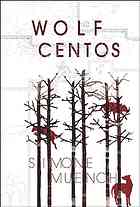
Wolf Centos
- اطلاعات
- نقد و بررسی
- دیدگاه کاربران
نقد و بررسی

August 18, 2014
Muench (Orange Crush), a winner of the Marianne Moore Prize for Poetry and 2013 NEA Fellowship recipient, successfully restricts herself to the cento form in her fifth collection, repurposing the lines and fragments of other writers. "Every transformation is possible," Muench writes, eschewing narrative obligations to create poems in which each iteration of the wolf adds something intangible to this complex world. The words, gleaned and repurposed from over 200 sources, have an exponential emotional impact; Muench manages to amplify her own creative power through the megaphone of literary history as she cobbles together a series of modern, sensual, and urgent short poems that howl about self, desire, and song. "In the space of a half-open gold door/ your body's animals want to get out," Muench names a still-present, lurking, unnamable wildness. She uses old words to point to a still contemporary connection between poetry and the primal, demonstrating the consistent importance of language, despite all obstructions: "Night in all things: in corners, in men's eyesâ/bees in a dried-out hive. Thus we forget/ that only words still stand like tar fires in the woods." Thus, Muench advises: "Sing with big blue tongue,/ sing until it breaks the nightâ/ black champagne, a lamentation."

August 1, 2014
How easily one becomes enraptured by Muench's (Lampblack & Ash, 2005) new collection, given its surprising collisions of images, gorgeous lucidity, and the linguistic fecundity of each vital line. In poems of snowy landscapes and blue moods, of tooth and tongue, hunter and prey, commingling and disintegration, Muench portrays the wolf as a totem animal embodying the wildness we possess in our very cells yet seek to suppress. But there's more going on here, given Muench's adept and sensuous use of form. Cento is Latin for patchwork and refers to a poem constructed out of lines or passages lifted from older poems. Muench lists her many illustrious sources in two dense pages of alphabetically ordered poet's names, including Anna Akhmatova, Gwendolyn Brooks, Allen Ginsberg, Federico Garcia Lorca, Adrienne Rich, and Wallace Stevens. So ingeniously, seamlessly, and provocatively does Muench arrange her selections, her potent patterns and imaginative juxtapositions retain the beauty and power of the original language while coalescing, alchemically, in original poems of haunting reverie, raw hunger, and struck wonder. Therein, The question of wolves turns & turns. (Reprinted with permission of Booklist, copyright 2014, American Library Association.)




دیدگاه کاربران